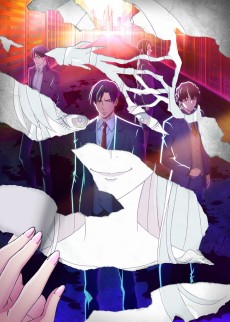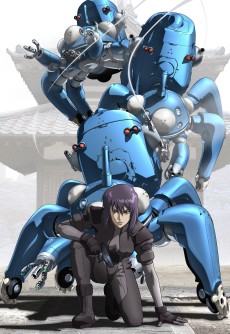MONSTER
STATUS
COMPLETE
EPISODES
74
RELEASE
September 28, 2005
LENGTH
24 min
DESCRIPTION
Dr. Kenzo Tenma is a renowned Japanese brain surgeon working at a leading hospital in Germany. One night, Dr. Tenma risks his reputation and career to save the life of a critically wounded young boy over that of the town mayor who had been planning to support the hospital financially. A string of mysterious murders begin to occur soon after the operation, and Dr. Tenma emerges as the primary suspect despite no incriminating evidence.
A doctor is taught to believe that all life is equal; however, when another series of murders occur in the surgeon's vicinity, Dr. Tenma's beliefs are shaken as his actions that night are shown to have much broader consequences than he could have imagined. Leaving behind his life as a surgeon he embarks on a journey across the country to unravel the mystery of the boy he saved.
CAST
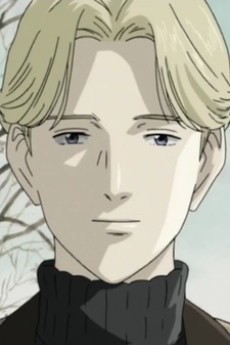
Johan Liebert
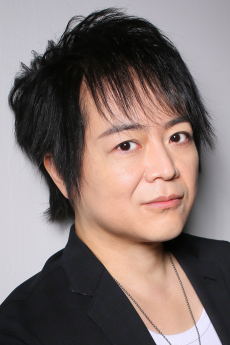
Nozomu Sasaki
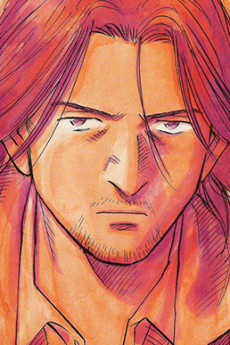
Kenzou Tenma
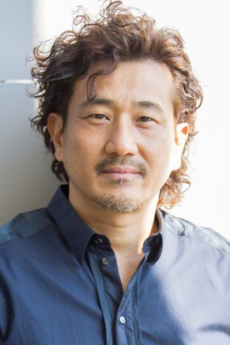
Hidenobu Kiuchi
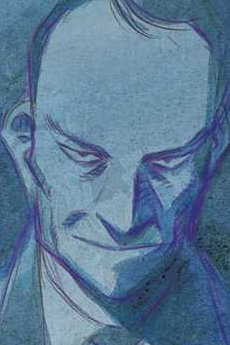
Heinrich Lunge
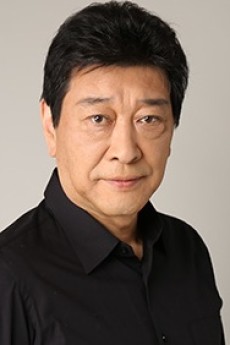
Tsutomu Isobe
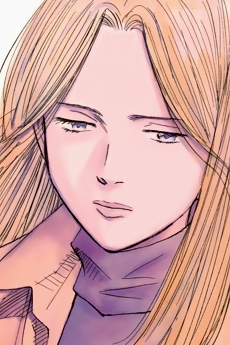
Anna Liebert

Mamiko Noto
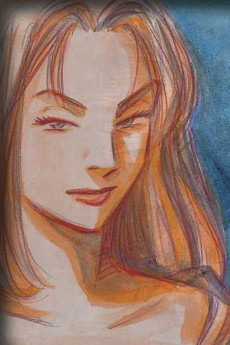
Eva Heinemann

Mami Koyama
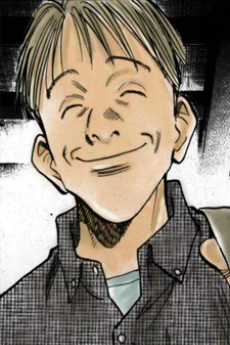
Wolfgang Grimmer
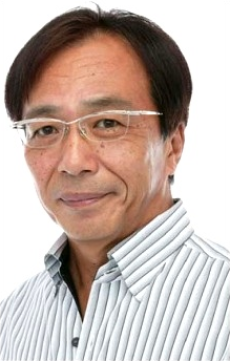
Hideyuki Tanaka
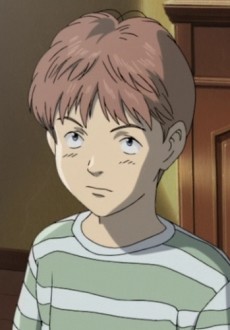
Dieter
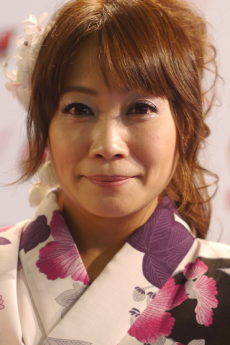
Junko Takeuchi
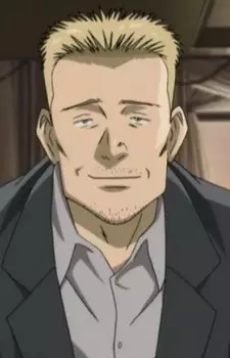
Martin Reest
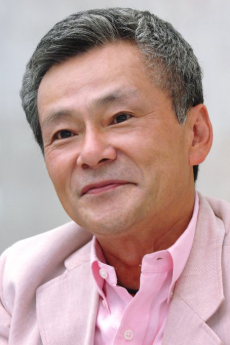
Shuuichi Ikeda
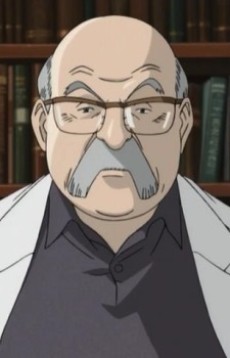
Julius Reichwein
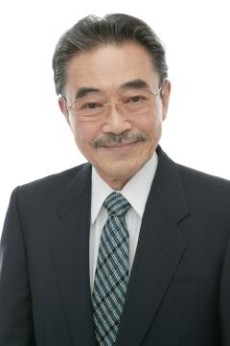
Ichirou Nagai
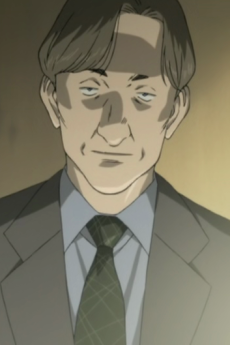
Franz Bonaparta
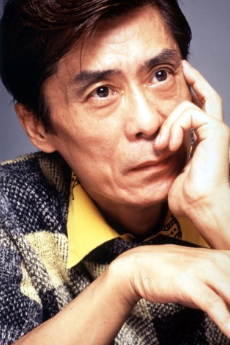
Nachi Nozawa
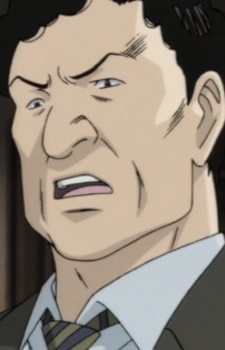
Richard Braun

Hiroshi Arikawa
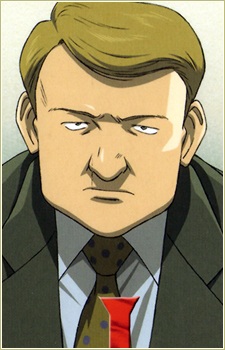
Rudy-Ulrich Gillen
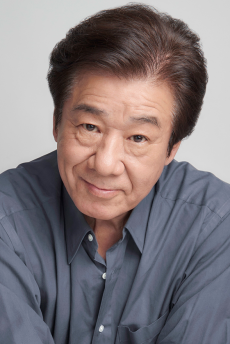
Takayuki Sugou
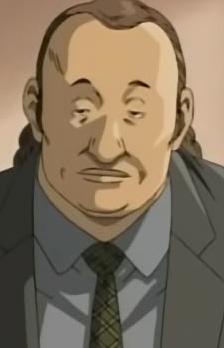
Roberto

Nobuyuki Katsube
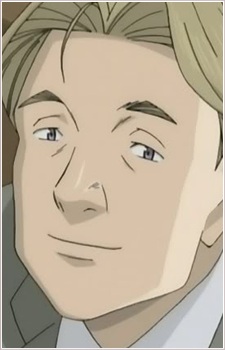
Jan Suk
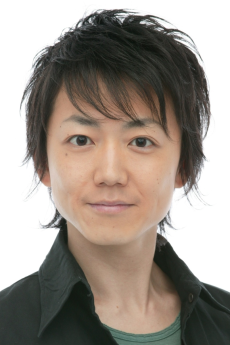
Hisayoshi Suganuma
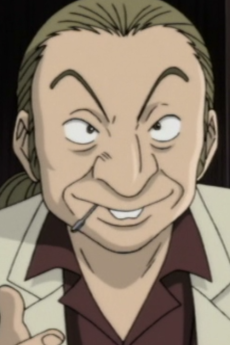
Otto Heckel

Yoshito Yasuhara
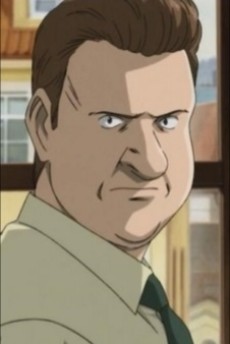
Fritz Vardemann

Ryuusuke Oobayashi
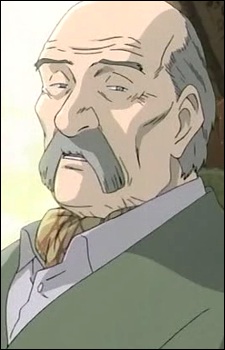
Hans Georg Schuwald

Michio Hazama
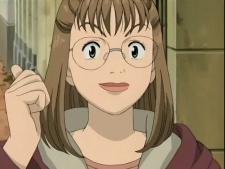
Lotte Frank

Kyouko Hikami
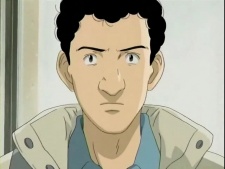
Karl Neumann
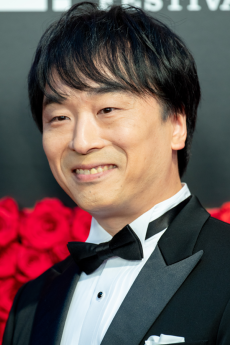
Tomokazu Seki
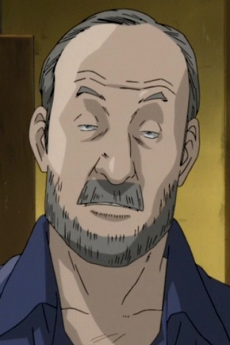
Milan Kolacsh
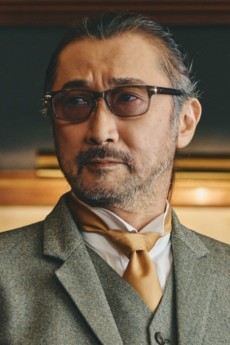
Akio Ootsuka
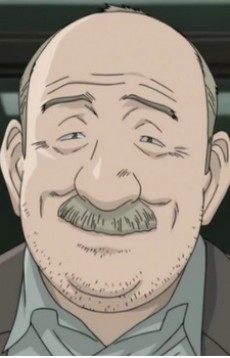
Rosso
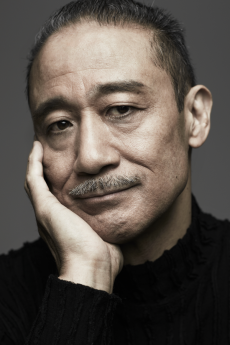
Banjou Ginga
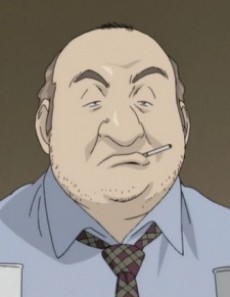
Jacob Maurer
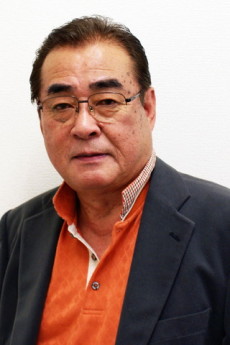
Yousuke Akimoto

Jaromír Lipský
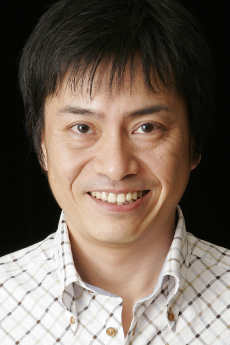
Hiroaki Hirata
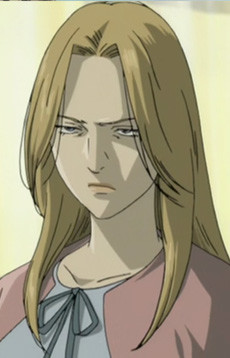
Viera Černá

Houko Kuwashima
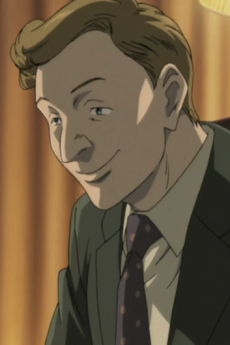
Christof Sievernich
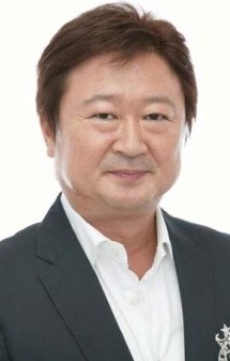
Masashi Hironaka
EPISODES
Dubbed
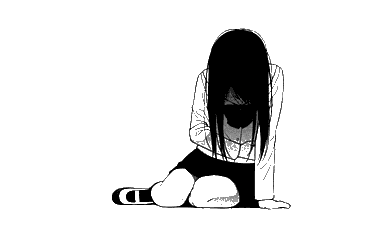
Not available on crunchyroll
RELATED TO MONSTER
REVIEWS

LUMAS
90/100Review for Monster written by AlasdairContinue on AniListMonster is a manga written by Naoki Urasawa and serialised in Big Comic Original from 1994 to 2001. In 2004, it was given a 74-episode anime adaptation by Studio Madhouse. The story centres around Dr Kenzo Tenma, a Japanese-born neurosurgeon working in Germany, who operates on a boy called Johan Liebert, a victim of a near-fatal shooting, who disappears under mysterious circumstances soon after the operation. Years later, Johan resurfaces as a grown adult – and a serial killer, who has developed a fascination with the man who saved his life, framing him for his crimes. Now Dr Tenma chases down Johan, with the intent of stopping him by any means necessary.
Monster’s greatest strength is its cast of characters. They are one of the most complex and overall human I have seen in any anime. Characters like Dr Tenma, Johan, Inspector Lunge, Eva Heinemann, and Wolfgang Grimmer are among my favourites in any anime. Some of the characters are, frankly, awful people, which makes it all the more satisfying when they turn their lives around for the better. On the flipside, Dr Tenma is pretty much 100% good, kind, and well-intentioned, proving that a character like that can be very compelling. Johan is one of the most darkly fascinating villains I’ve ever seen and Grimmer – well, I’m not sure I can entirely explain the appeal of Grimmer in words.
The show’s other big strength is its thematic density. The central theme of the show is forgiveness and redemption – How far is too far to turn back from? Is there a “too far?” The setting of this show handily facilitates that – Germany, only a few years after the fall of the Berlin wall. The atrocities committed by the nations of the Eastern Bloc loom large over the show, and this leads me into the show’s other big theme – the consequences of child abuse. I won’t go further for fear of entering into spoiler territory, but it is a respectful depiction of a serious subject that never veers into exploitation.
Overall, Monster is pretty much universally beloved by everyone who watches it for good reason. Personally, I’d recommend reading the manga over watching the anime – it doesn’t really gain anything but pacing issues from being transferred into an animated format – but both ways of experiencing the story are good.
Yataboi
85/100A series to truly get lost within; its characters so deep they manage to distract from the central narrative.Continue on AniListIt's easy to neglect what story Monster is truly concerned with telling. At face value, it's the struggle of Tenma to prove his innocence, and yet it's driven home numerous times early on that that isn't Tenma's raison d'etre—so then what's really going on here? It's easy to detach from the central narrative and instead get swept up in its boundlessly deep characterizations. Every single recurrent character has some deeper implications, machinations, and essential strengths and weaknesses to explore, and the narrative seems hellbent on touching on each and every one. However, that still is not the central conceit of this tale; it always was and never ceased to be a story about a Monster. Pretty comical to think of, right? If you're not constantly wondering just what the hell Johan is, are you really even paying attention? Even as the series dangles an explanation, you're meant to meet such an explanation with skepticism, and yet this isn't made clear until the very end when frankly, you're quite tired of being skeptical at all and just want to have your cake and eat it. That there was my fatal falling with this series, and why I'm conflicted in propping it up as a classic as so many others do. On the one hand, I can see now the each and every character was meant to perform a specific function, and yet my cynicism and general expectations of this medium sort of demand such a construct be more easily discernible from the jump; and therein lies what must be ascertained from this musing in general. This series is a mystery. It's meant to be akin to a puzzle being constructed slowly and deliberately for that final, grand payoff at the end; sliding the final piece into place and stepping back to see what was built. Spoilers abound as we move forward.
~!The first piece to consider naturally will be Johan himself. On three separate occasions we (the audience) are provided an explanation of sorts for Johan's actions. This boy becomes a cold, calculated, mass murdering genius of unfathomable proportions. From whence does such a monster come? Why, he's a brainwashed super soldier birthed from a human experiment doused in cold war anxiety of course! The first leg of Tenma's trek to uncover Johan delves deeply into this, and the character of Dieter functions as the way to clue us into the invalidity of this reading from the jump. Dieter is subjected to more or less the same treatment which Johan experienced at 511 Kinderheim, and yet Dieter is nothing like Johan at all. I must confess that, despite such a brief glossing of this dichotomy, it's genuinely tough to remember very much of this arc as it was both months ago in my life as well as, frankly, my least favorite part of the series as a whole. I can recall Dieter being distinctly distant and cold towards most everybody, but the important nuance to observe is twofold in that Dieter both eventually sheds this callousness and develops attachment to Tenma and later to Nina, but also a complete lack of Johan's yearning for destruction and manipulation. Dieter, while sullen and depressing, is a normal enough kid, and he acts as a dramatic foil to the nihilism first characterized in Martin, the sickly boy who survived "the rooftop game," which is an essential motif to Johan's character in general. Martin himself is the first glimpse into the essential nihilism of Johan in that life's grandiose existence is reduced down to a game to play; the delicate balance of life or death to become a children's plaything. Martin fails to encapsulate this for much the same reason Dieter rejects the notion, and while this period seemed captivating at the moment, its true impact was lost on me at the time. It seemed only meant to build up Johan as even more of a Monster in demonstrating how he manipulates and abuses children, but its thematic importance runs much deeper than that. This is the core pattern of every character which crops up possessing some impression of Johan. They're all meant to clue us into the inner psychology of the monster and to see him for what he is. Grimmer, Roberto, and Christof are also all examples of these impressions of Johan given that they too are alumni of 511 Kinderheim. Yet each also fails to perfectly encapsulate the dissolution of human emotion which was the stated goal of the establishment in their own ways, although the timeline for these characters' finalizations also do not conveniently align with the timeline of Johan's uncovering.
Thus the second explanation provided for Johan's being was Franz Bonaparta's experiments which similarly sought to dissolve human emotion out of people. While the core blueprint behind 511 Kinderheim, its focus strikes me as being far more precise and targeted specifically at
Johanor Nina, as it turns out. Here is where I find my cynicism towards the series starting to bloom proper in that I find it a bit marked by incredulity or incongruence how both experiments coalesced perfectly around Johan both in how each concerned him in particular (with Nina's involvement being the only real caveat aiding this diabolus ex machina's credibility) and in how one seamlessly covers the other. Perhaps that's a fault in my perception of the mystery genre as well, but it does leave a certain unsatisfactory taste nonetheless. Nonetheless, Franz Bonaparta becomes the central fixture of Johan's plotting and insights the burning of the library, a scene whose symbolic power and significance are far more reaching than I'd realized at first confrontation. The library contained the key to Johan's past in Bonaparta's picture books which similarly represent Bonaparta himself; moreover, the library press conference was meant to be part of the Neo-Nazis' plot to install either Johan or Christof into a seat of political power. All of these are things which Johan would wish to destroy given his revelation of his Kinderheim-locked memories, ironically unveiled by the very place he sets ablaze. The act seems to come out of nowhere, and yet in retrospect it's perfectly in line with Johan's character: he obsessively erases any hints of his past so as to preserve his trajectory of life, he wishes to strike down Franz Bonaparta as revenge for his mother's and sister's suffering at his hand, and he no longer has any need to enable the new world order for which the Nazis want to plant him as a puppet figure for. All of this coalesces beautifully as a soft reset for the central conceit of the narrative: no longer is Johan seeking wanton destruction in order to replicate his own existence with no regard for anyone; now it's a targeted mission with a clear objective, albeit this objective is not revealed to us until much later on.And so the final layer is revealed here marrying these two aspects together, in effect. Johan still wishes to bring about some semblance of an apocalypse, but the central conceit in the end of the show is to prove whether or not he's meant to be alive at all. As we find out, the twins' mother willfully sacrificed one of her children to Bonaparta, and this perceived lack of empathy from her fractured Johan's childlike worldview, which would continue to be pressured and crushed underfoot first by Nina's mistreatment at the hands of Bonaparta imparted onto Johan upon her return, which transformed into his own state of being after 511 Kinderheim wiped away the majority of his memories, which then manifests in his later killing sprees and systematic destruction of any sense of his self. The scene of the massacre of the Red Rose Mansion echoes in both the Kinderheim and Ruhenheim massacres as well. Johan seems to want to perpetuate his suffering and spread it onto others, the ironic twist being that he wants only for people to understand his suffering—to be connected to someone. Moreover, the countless times he faces death and symbolically points to his forehead are times he's playing his rooftop game with life and death; Johan wants to confirm whether he's meant to live or not. The series ends with his confirmation being final as he slips away from his comatose hospital bed into the unknown. Despite only being a single piece of the puzzle, there is so much more to discuss on the topic of Johan that I'll leave for another time. This series certainly is fascinating to ruminate on and I'll simply have to revisit it in some way in the future. It's inevitable. Until then! !~

Ab3Saucy
95/100Monster combines the tools necessary to create a great anime and weaves them into a long sometimes slow but great animeContinue on AniListBeing a doctor means having an oath to save someone's life because all lives are equal. To be a doctor means you have the skills and tools to go above and beyond to help and save peoples lives. Working in Germany during the 1980 Doctor Kenzo Tenma, a well renowned brain surgeon lives his life fulfilling his oath. Until, one day a boy with a serious brain injury and a famous politician also with a life threatening injury come in. Dr. Tenma has to make a decision between saving the boy or the politician. Little did he know that this decision would turn his world upside down and result in the murders of many innocent people.
Most will be discouraged by the 74 episode listing, but if you’re reading this I assume you’re interested enough to see if it’s worth it.I will also add that I am currently in self quarantine because of COVID-19, so I have time to finish it. Thankfully the slow pacing is backed up by it’s grey astounding characters and suspenseful plot. If anyone has seen the show Game of Thrones, you would know how important the characters are. They have their issues that make them relate able and much more interesting. The same is done here. The array of characters from Dr. Tenma, Johan, Nina, Lunge, Grimmer and more creates a relationship between you and the characters. You root for Dr. Tenma to fix his life. You sympathize for Nina. You can’t help but be captivated by everything Johan does. Throughout the story there were characters I initially didn’t like or have strong feelings for (inspector Lunge cough cough), but by the end I appreciated them so much (He’s an actual genius). This is because through all those episodes you slowly get to know them.
The plot on the other hand, oh my god the way it unfolds. By the Red Rose Mansion arc I’m in so much suspense. While the stories and mysteries unfold you also discover more and more about the antagonist. The reasons he does everything he does and how it all ties in together. The other thing about this anime is that it focuses on age old topics. Topics such as “is humanity meant for good or meant for bad?”. This has been done multiple times before, but Monster does it in such a unique way. Dr. Tenma is also an example of people’s ideal self. Someone who cares for others, and showcases all the good traits of mankind. However, he isn’t perfect; he is dealing with great pressure and mental turmoil. Johan is his coil resembling all that's bad in mankind. He showcases those haunting feelings we suppress and are afraid of. Yet you can’t help, but feel a sort of guilty pleasure when Johan appears. If you enjoy crime and mystery shows this anime is meant for you.
I got more out of this anime than a good time. I learned to appreciate the different types of anime their are and the complexity of the stories they tell. Monster isn't like any "traditional anime" their aren't any ecchi scenes, fan service, stretched out shounen fights, love triangles , outrages characters, you know none of the things we can easily spot in most anime. Yet it does what I believe differentiates anime from any other type of animation. It leaves the viewers contemplating about the importance of what they just watched. Of course that's just my opinion haha, but thank you for taking the time to read this!
SIMILAR ANIMES YOU MAY LIKE
 ANIME MysteryDEATH NOTE
ANIME MysteryDEATH NOTE ANIME ActionPSYCHO-PASS
ANIME ActionPSYCHO-PASS ANIME DramaGankutsuou
ANIME DramaGankutsuou ANIME DramaZankyou no Terror
ANIME DramaZankyou no Terror OVA DramaGinga Eiyuu Densetsu
OVA DramaGinga Eiyuu Densetsu ANIME ActionKenpuu Denki Berserk
ANIME ActionKenpuu Denki Berserk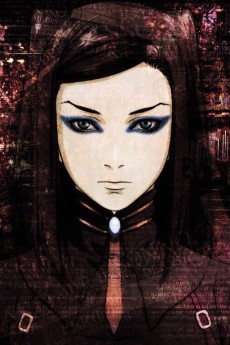 ANIME AdventureErgo Proxy
ANIME AdventureErgo Proxy
SCORE
- (4.4/5)
MORE INFO
Ended inSeptember 28, 2005
Main Studio MADHOUSE
Trending Level 17
Favorited by 18,419 Users



